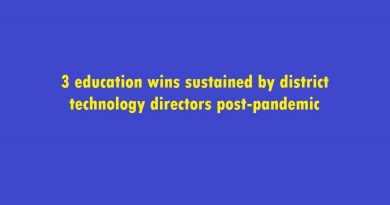Unlocking the leadership potential of Gen Z: a guide for senior leaders/7/
From their tech savvy to their commitment to social impact, Gen Z has enormous potential. But their leadership skills and EQ must be developed with intention, these 3 senior leaders say.
Every week, there seems to be another piece bemoaning the “challenges” of Gen Z workers. Many senior leaders feel Gen Zers come across as more frustrating than additive: demanding, questioning, and challenging their managers with nontraditional views of work.
Gen Z’s friction-causing approach earns them a lot of flak. But what senior leaders often overlook is their remarkable potential. If we’re honest, each of us was overconfident in our views and underskilled in social dynamics when we first entered the workforce. So, in some ways, Gen Z are just like us at their age, and they’ll mature—like many of us did.
Here, we inventory Gen Z’s special powers as leaders. We also articulate why their strengths will only be fully realized with purposeful support from more tenured leaders, and what that support needs to be.
But some of what annoys us is what also makes them uniquely prepared for success in a transforming global ecosystem. From their technical savvy to their commitment to social impact, these younger workers can be terrific leaders of the future. Says Paul Hastings, CEO of San Francisco biotech company NKarta: “Our Gen Z employees are our greatest asset. But we have a duty to develop them carefully.”
Senior leaders must step up to this duty by tapping into Gen Z’s strengths, investing in their development, and helping them realize their full potential. That begins with the core skills of effective communication and builds by developing their existing abilities to drive multi-stakeholder models, adapt quickly to changing circumstances, and focus on the bigger picture.
Here are four Gen Z strengths that leaders should lean into:
Informed, but demanding, decision makers
Gen Z has never known a world without the internet. They grew up with instantaneous access to the combined knowledge of humanity. They take for granted having exposure to a diversity of perspectives that previously took a lifetime to experience. They also get angry about what they see as the ethical and environmental failures of older generations. As a result, they expect transparency and accountability on just about everything.
These impulses are admirable, but they need to be tempered. It may not be helpful to be transparent about a colleague’s failings in a group meeting. Accountability can be nuanced and may not rest with one person. The role of more senior executives is to respond to Gen Z’s higher expectations but also to coach them on greater EQ, including how to disagree and debate productively.
Resilient Adaptors
This cohort has come of age in an unprecedented time. They communicate more via devices than face-to-face. Many were hired via Zoom.
According to Jonathan Haidt, author of The Coddling of the American Mind, unsupervised time for children has declined significantly over the past five decades. While many of us were allowed free play as young as 5, the average age that a Gen Zer was allowed to go outside without parental supervision was closer to 11.
Tack onto the social and emotional toll of a global pandemic, and it’s not unsurprising that this cohort doesn’t approach social interaction in the same way older generations do. Despite this, Gen Z has shown a strong ability to effectively navigate challenges, adversity, and change—a critical capability for tomorrow’s workforce.
Ken Banta has observed this in The Vanguard Network’s New Leaders programs, where Gen Z high potentials work on leadership challenges in peer settings. Says Ken: “The degree to which they share personal challenges such as mental health issues and ask for constructive feedback is remarkable—and inspiring.”
The ability to adapt will drive organizational success: a recent EY report estimates more than 375 million people will need to reskill by 2030. Leaders should nurture this capability to adapt and supplement Gen Z’s natural adaptability with formal training on how to apply their capabilities at work.
Social Champions
Gen Z is leading a sea change in workplace dynamics and social impact action.
According to the most recent Edelman Trust at Work report, 93% of employees have been influenced by Gen Z to change their minds about work-life boundaries, fair pay, and their employer’s involvement in societal issues. Nearly two-thirds of respondents said that Gen Z coworkers had increased their willingness to pressure their employers to change things they don’t approve of.
“Gen Z’s gravitational pull over colleagues of all ages is actually reshaping the meaning of work and the role work plays in shaping our identity,” says Cydney Roach, global chair of Edelman’s Employee Experience advisory practice.
On issues of sustainability, DEI, and hybrid work, Gen Z are in the lead. They aren’t just asking for moral and meaningful work—they are demanding it, and winning it.
But senior leaders are often frustrated by Gen Z’s impulse to call out issues publicly instead of trying first to resolve them internally. This can be counterproductive.
As leaders, we can show Gen Z how to drive long-term change effectively by building consensus and partnering with internal stakeholders. At the same time, we have to create the space for change and support their initiatives even if they rock the boat.
Digital Prodigies
AI is coming for us all. There isn’t a job or an industry that won’t be transformed in the next few years. By the time most of us master prompt crafting, the AI interface will be fully conversational. Adaptability will define success in the future of work.
In this area, Gen Z truly shines. They are not just keeping up; they are leading the charge. As the rate of change accelerates, their ability to adopt new technologies at speed will be a critical asset. One example: At a leading New York law firm, the CFO has put his earlier-career team members into important roles in developing AI practices and policies. “They know more than I do about this,” he says.
So on AI and other new technologies, we need to recognize that Gen Z should take the lead on key dimensions and bring the rest of us along.
But Gen Zs don’t know what they don’t know, especially fresh to their jobs and unaccustomed to working relationships. For them to truly reach their awesome potential, it will take intentional investment from senior leaders. A focus on mentorship and professional development, especially during the time they are in the office, will be critical to their success.
Debevoise’s Craig Fields offers a valuable model. He and his leadership team create detailed schedules for each day that early career colleagues are in the office, focused on collaborative working, shadowing more senior colleagues, and team problem-solving. “We aim to keep these younger colleagues off their email and off their screens when they are in the office,” Craig says.
With our help investing in developing their strengths and addressing their challenges, Gen Z will become the leaders of the future that we hope for.
Source: https://www.fastcompany.com/91037995/unlocking-the-leadership-potential-of-gen-z-a-guide-for-senior-leaders




